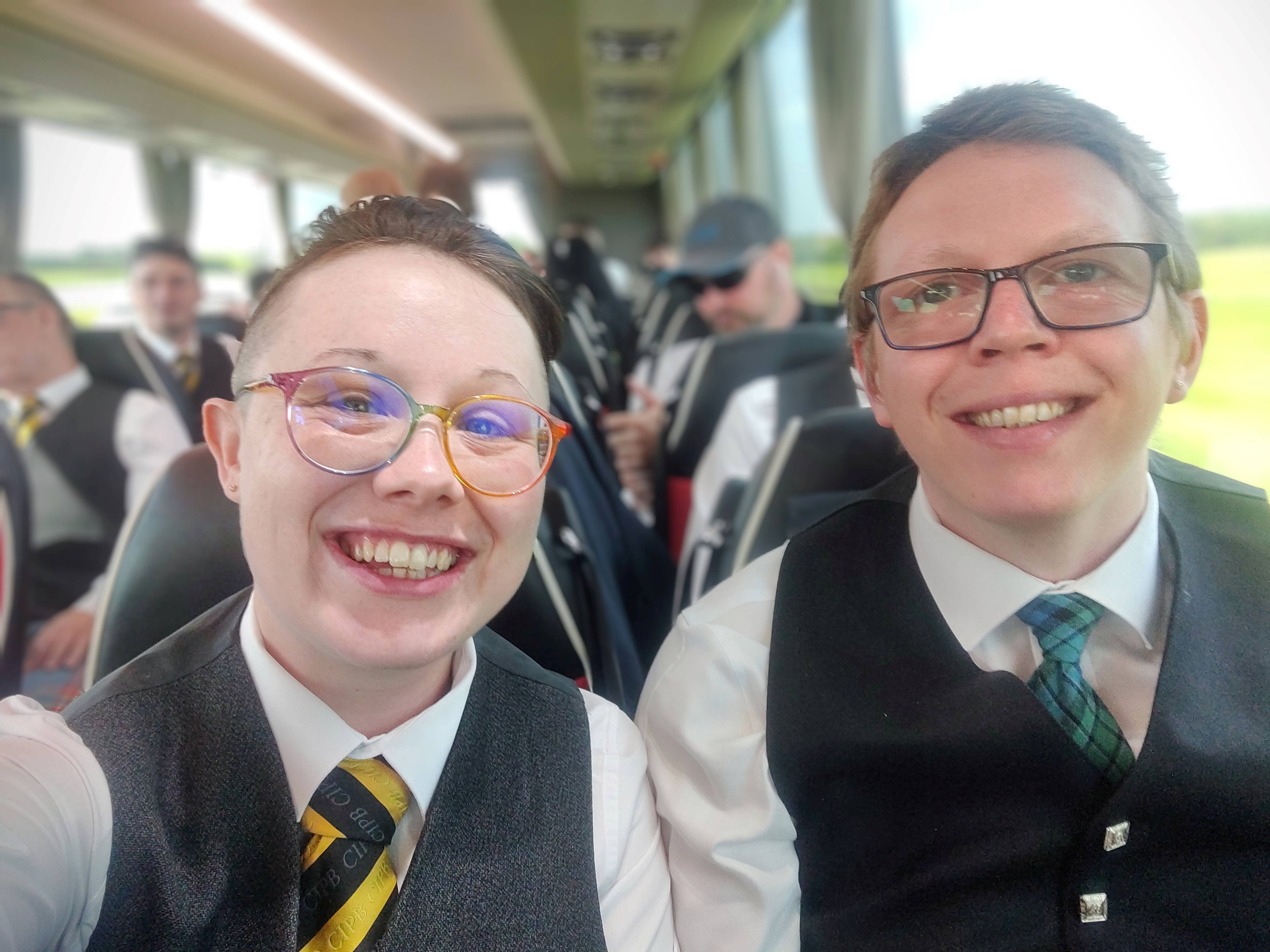
Strategies for supporting Neurodiversity and diverse minds in the workplace
Interviews
By Kirsty McCallum (They/Them), IT Service Desk Analyst at Capgemini.
My name is Kirsty, I’m 30, non-binary (they/them), and I’m an IT Service Desk Analyst. My husband Kenny is autistic and epileptic. Here's what I've learned through supporting Kenny's experience in the workplace, as he navigates his career.

Awareness Training
One of the biggest barriers neurodiverse people can face is a lack of understanding by their management. According to research published by Birkbeck in 2023, 65% of neurodiverse people are afraid to disclose their condition because they fear discrimination from management. Interestingly, 65% of employers say managers don’t know enough about neurodiversity or how to help.
Knowledge of neurodiverse conditions can be useful in hiring new employees. The Neurodiversity as a Competitive Advantage article from Harvard Business Review (May-June 2017) states “Especially in large companies, HR processes are developed with an eye toward wide application across the organization. But there is a conflict between scalability and the goal of acquiring neurodiverse talent.”
Flexible Work Schedules/Hybrid Working
In Birkbeck’s 2023 research, it was found that flexible work schedules and (where possible) the ability to do some work from home ranked as the most effective working methods for neurodiverse people.
When we were at university together, he did his best work at home, where it was quiet and the lighting was more sensory-friendly. Today, Kenny still needs more time to mentally prepare himself to take on new tasks, which makes it much easier for him to get started and focus on what needs to be done.
Adjustments and Provision of Tools
Adjustments to working environments or policies, or the provision of certain tools can boost a neurodiverse person’s productivity and even their mood!
- Screen filters – These are transparent coloured sheets that can overlay a person’s screen or be used over printed documents, allowing people with dyslexia to read information more clearly.
- Coloured notepads – Again benefitting people with dyslexia, notepads with coloured pages make reading handwritten notes easier.
- Earplugs – Providing earplugs or allowing employees to use their own can help people with autism or auditory processing disorder to filter out unwanted noise and distractions.
- Quiet rooms – where they are not able to work from home, the workplace can become overwhelming, and they may need to let out any tics or stims they have been suppressing. A quiet room is the perfect place to let it all out without distracting colleagues.
- Clear, concise feedback – After meetings, training, or praise, some clear concise notes (or visual aids such as slides) can help a neurodiverse person remember what was said and action any tasks without getting too bogged down in details.

Regular Check-ins
Managers should always hold regular check-ins with employees, however for neurodiverse people these can be even more invaluable as they may not feel comfortable approaching a manager during work, or they may become distracted and forget. I’ve lost count of the number of times Kenny’s mum has asked me if he told me something, to which the response is usually no, but if I take the time to ask if there’s any news from the day, he’s more likely to remember.
A relaxed conversation, led by what the colleague has to say, is a much nicer way for neurodiverse people to share their concerns. If you were to ask Kenny about his hobbies, that would be a surefire way to get him talking, and would give him an opportunity to showcase some of his skills, which ordinarily he might not have talked about or shared! Kenny and I both perform in musicals, and we’re both members of a local pipe band – Kenny could talk for hours on musicals! Both of those hobbies involve having a great memory for lines, choreography, and sheet music, and they also require a lot of multitasking.
Checking in regularly with a neurodiverse colleague is also a great opportunity to reward outstanding work or progress. Positive feedback works wonders in boosting confidence and morale!
Neurodiverse Groups and Networks
Creating groups and networks for neurodiverse colleagues within an organization allows people to connect with others and offer support. Connecting with similar neurodiverse colleagues via Teams or the occasional in-person meeting allows them to share experiences that their managers may not fully understand. It also allows them to share solutions and new ways of working! Kenny used to be a member of a local theatre group for those with disabilities and he made some lifelong friends along the way – people with whom he can share things that neurotypical people just wouldn’t understand.
Capgemini have recently launched the NeuroAbility network group for neurodiverse colleagues and allies to support each other and continue to shape an inclusive future for all.
Sources:
McDowall, C., Doyle, N., Kiseleva, N. (2023).
Neurodiversity at Work 2023: Demand, Supply and a Gap Analysis. London:
Birkbeck
Austin, R. and Pisano, G. (2017). Neurodiversity as a
Competitive Advantage (online). Available at:
<https://hbr.org/2017/05/neurodiversity-as-a-competitive-advantage>
(accessed 6th March 2024)

